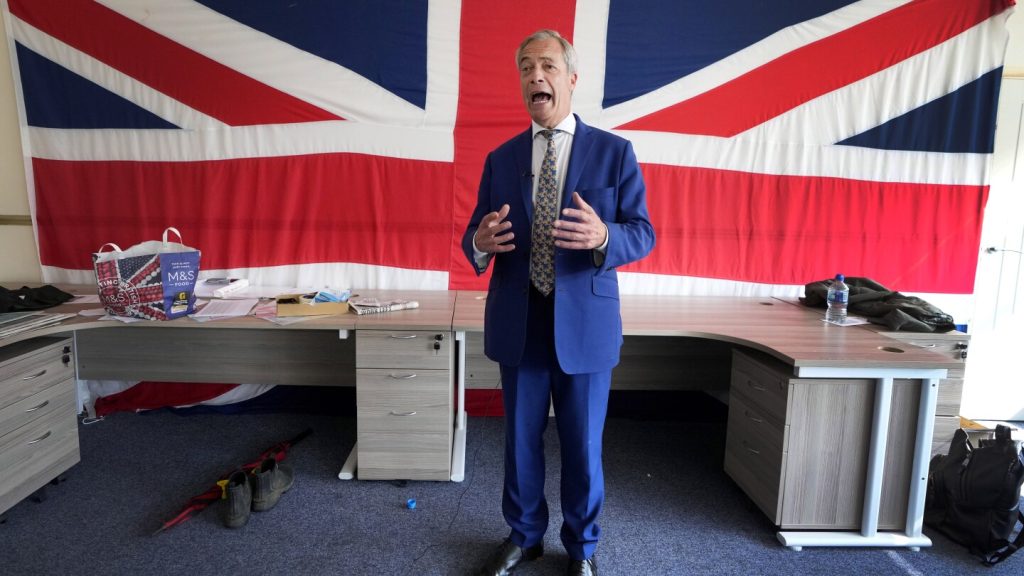In Clacton-on-Sea, England, residents are expressing disillusionment with the state of their town, citing issues such as difficulty accessing healthcare, canceled bus services, and a lack of public housing. Many voters in this traditionally Conservative area are now turning to the populist Reform UK party, led by Nigel Farage, who is campaigning on an anti-immigration platform. Farage’s message resonates with those who feel that record immigration has negatively impacted Britain, leading to a sense of overcrowding and resource strain. The town’s strong support for Brexit in 2016, with promises of increased border control, has not been met, fueling further discontent.
The upcoming national election in Britain is taking place amid widespread dissatisfaction among the public on various fronts, including a high cost of living, a struggling economy, and shortcomings in the healthcare system and infrastructure. This sentiment has boosted the Labour Party in the polls but has also provided an opening for Farage and Reform UK, as they tap into concerns about immigration. While some criticize Farage for stoking racist sentiments, others in Clacton share his views, particularly given the town’s history of supporting Brexit and subsequent disappointment over immigration levels not decreasing post-Brexit.
Farage, a polarizing figure and key proponent of Brexit, is focusing on the issue of immigration in his campaign, emphasizing the strain it places on the country’s resources and public services. Despite the economic benefits that immigrants bring to various sectors, Farage argues that the population explosion is a primary reason for Britain’s decline. The official migration figures show a significant increase in recent years, prompting calls for tighter controls and restrictions on immigration. While Farage’s message has found support among certain demographics, others view his rhetoric as a simplification of a complex issue that overlooks the contributions of immigrants to the economy and society.
The debate around immigration in Britain often centers on the smaller number of asylum-seekers arriving by boat, with Reform UK advocating for tougher measures to address this issue. Farage’s party proposes leaving the European Convention on Human Rights to facilitate deportation of asylum-seekers and a freeze on nonessential immigration to protect British culture and values. While Reform’s policies may not have widespread support, they resonate with certain voters, including former Conservative supporters who feel neglected by mainstream parties. The Conservatives, in response, have also adopted more hardline stances on immigration, reflecting the influence of Reform UK in the political landscape.
As the election approaches, the divide over immigration is deepening, particularly among older, male Conservative voters who backed Brexit. The issue has become a key factor in determining voter preferences, contributing to a shift away from the traditional party allegiances. Prime Minister Rishi Sunak has made reducing immigration a central part of his platform, aiming to address concerns raised by Farage and attract voters back to the Conservative Party. However, the hardening of immigration rhetoric from both the Conservatives and Labour has led to accusations of a race to the bottom on migration, with critics cautioning against scapegoating immigrants for broader societal issues.
In Clacton, Green Party candidate Natasha Osben challenges the narrative that migrants are to blame for local challenges, highlighting the neglect of communities by mainstream parties. She acknowledges the frustration and disenchantment that have allowed Farage to gain traction but emphasizes that he is not the solution to the underlying issues. As the election approaches, the immigration debate continues to shape political discourse in Britain, with voters seeking reassurances on border control, community resources, and the impact of migration on the country’s future.


